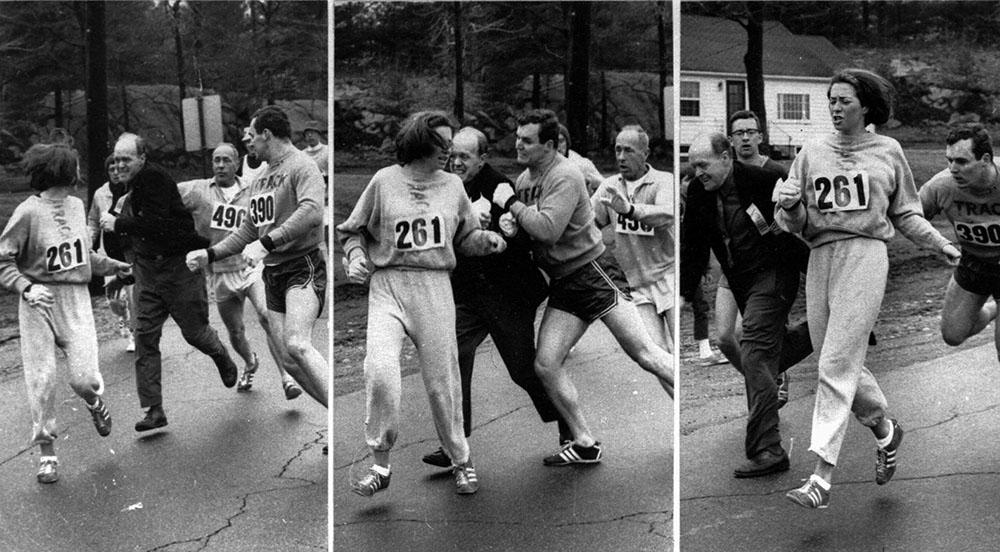
Last month, around 30,000 runners raced the Boston Marathon, with women making up about 45 percent of the field. But in 1967, there was only one woman with an official bib: Kathrine Switzer. Aside from training for months through the bleak winter, the 20-year-old journalism student had to break barriers, overcoming prejudice, criticism and ridicule just to toe the line in Hopkinton. At the time, it was widely believed that women were too delicate to run anything over a mile. Fears that long-distance running, or any vigorous sport, could cause uteruses to fall out, or turn women into men, were commonplace. Switzer challenged the Boston Marathon’s all-male tradition by becoming the first woman to register and finish. (Another trailblazer, Roberta “Bobbi” Gibb, had run Boston the year prior, but unregistered.)
She had signed up as “K.V. Switzer,” thus escaping the immediate notice of race officials. But by mile two of that fateful 1967 race, Switzer had caught their full attention. The angry race director, Jock Semple, tried to rip off her bib—number 261—and throw her off the course. Instead, her then-boyfriend body-blocked Semple, and Switzer went on to show the world that women could in fact go the whole distance—all 42.2 kilometres. Images of her being attacked catapulted women’s running into the media spotlight, which altered the course of sports history forever. By 1971, the formal rules were changed: women could enter marathons.
After Boston, Switzer set her sights on creating opportunities for other women, establishing the global race series known as the Avon International Running Circuit. Through her lobbying, she helped secure the introduction of the women’s marathon at the 1984 Summer Olympics, and went on to become an award-winning sports broadcaster and author. She has since run more than 40 marathons (and counting), including Boston in 2017 at age 70, marking the 50th anniversary of her symbolic race.
Recently, Switzer launched her own non-profit, 261 Fearless (a nod to her iconic bib number), with the goal of empowering women around the world through the creation of local running clubs. This weekend, Switzer will be in Toronto speaking about 261 Fearless at the Toronto Marathon Expo.
Ahead of her visit to Toronto, and shortly after this year’s Boston Marathon, we recently called up Switzer for a one-on-one interview on her running legacy, the future of women in sport, and why she’s not ready to retire from marathoning.
This interview has been edited and condensed for clarity.
How was the Boston Marathon this year?
“The weather was amazing, in that it was all four seasons. Cold and windy, rainy, humid, and then the sun came out. It was blistering hot for about half an hour—people were ripping off their shirts and pouring water on their heads—and then it was back to a freezing headwind. It was really weird. It was wonderful to see Worknesh Degefa from Ethiopia [the women’s winner, with 2:23:31] take the race by the throat and run solo from halfway on. The men had a very exciting photo finish. You can’t ask for more.”
It was a super gutsy move for Degefa to pull ahead early.
“Yeah, it’s a very gutsy move because you’re out there alone, and it can be very painful if you hit the wall. And her 2:17 was in Dubai [Degefa’s race in January 2019], which was perfectly flat, so you didn’t know how she was going to do on the hills. But she was strong, no question. To me, [there were two] really brilliant performances in Boston this year. One was Edna Kiplagat, who got second. She’s just the consummate runner. And the other was Joan Benoit Samuelson, running a 3:04 at age 61. According to the online publication Podium Runner, her age-graded performance would have won the Boston Marathon.
“I was also really excited to see my team of 261 Fearless athletes [running the Boston Marathon]. We had 35 women, raising money for the 261 Fearless Foundation. I’m just so proud of them.”
You’ve been present at the Boston Marathon since 1967. How has the race changed?
“I think the most profound way of explaining it would be how I felt in 2017, when I ran it again for my 50th anniversary. In ’67, naturally I was nervous because I didn’t know what kind of reception I would receive. I was standing at the starting line, the only woman wearing a bib number. Then standing at the starting line again 50 years later, seeing that almost half [the entrants] were women wearing bib numbers—that was an amazing feeling, to see the change. It’s been a social revolution. The women out there running are not running to be Olympic athletes. They’re running because they feel a sense of fearlessness and empowerment.”
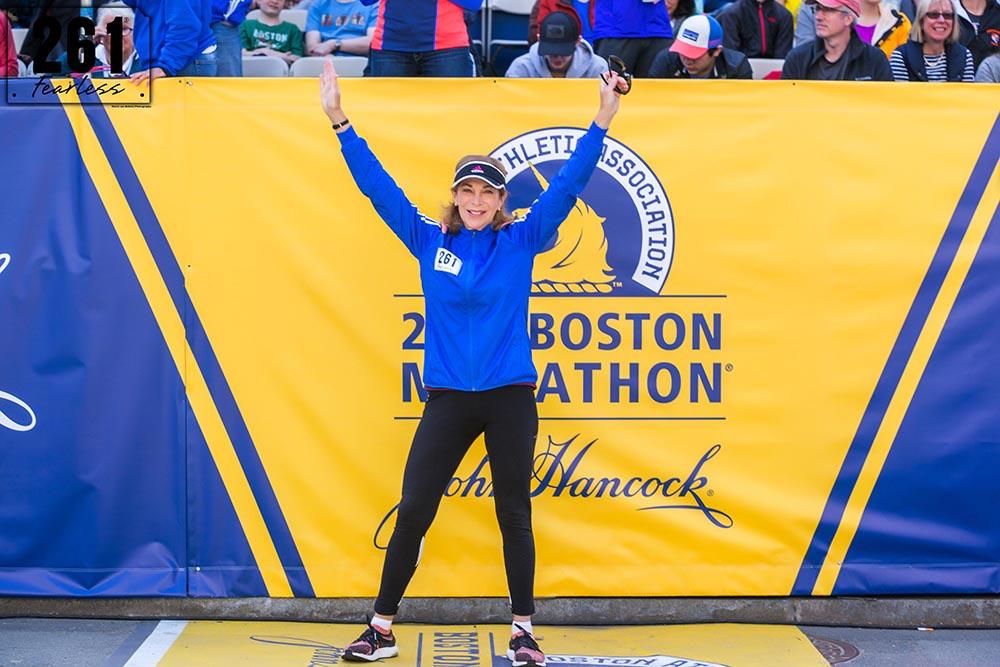
You have a Toronto connection. In ’67, you came here a couple weeks after Boston to run our marathon as well.
“Yes, 17 days later. There is a book coming out about [the only other girl in the race] Maureen Wilton. [Ed: The book, Mighty Moe: The True Story of a Thirteen-Year-Old Running Revolutionary by Rachel Swaby and Kit Fox, is slated for an October 2019 release.] I’m very excited about it. I’ve written the foreword.
“I was asked to come up and run that race to legitimize it for her. The guy who was coaching her wanted another woman there, so it didn’t look like she was just jumping in. [He wanted] a quote, unquote ‘legitimate race.’ I said, ‘Listen, I still have bloody feet here. I’m exhausted. I’ll probably finish last.’ You have to understand, I had just been thrown out of the Amateur Athletic Union, our governing body of sport, because I had run the Boston Marathon—I had run with men. They made a big deal out of it. But I felt, at least one country wants me! [Laughs.] My whole team got kicked out, and we decided we would all go up and run in support of running, in support of this young girl [Wilton]. And we did. She was 13 and ran a 3:15—then a world record.”
“My whole team got kicked out, and we decided we would all go up and run in support of running, in support of this young girl.”
You’re coming here again for the Toronto Marathon this year.
“I am. I like Toronto a lot. I am bringing some of my 261 team to try to get 261 clubs started in Canada. Women in Canada need this organization, especially in remote areas where they don’t have a big running community. They need to create their own. A lot of women in those areas are quite isolated and could use the comradeship. When you’re out there in the boondocks, it’s great to know you’re not alone, you know? That’s what 261 Fearless is about, getting women to take that first step, and communicating with other women around the world.”
When you ran that first marathon, did you imagine this would be your career?
“I knew two things. One, when I crossed that finish line, I knew I wanted to become a better athlete, because I knew I was going to get cheesed for being ‘just a jogger.’ In those days, a 4:20 was considered jogging. I wanted the credibility and I wanted to shut people up about my athletic capability. I knew I could be a better athlete. I worked really hard at that. [Ed: Switzer later ran her PB, 2:51, at the 1975 Boston Marathon.]
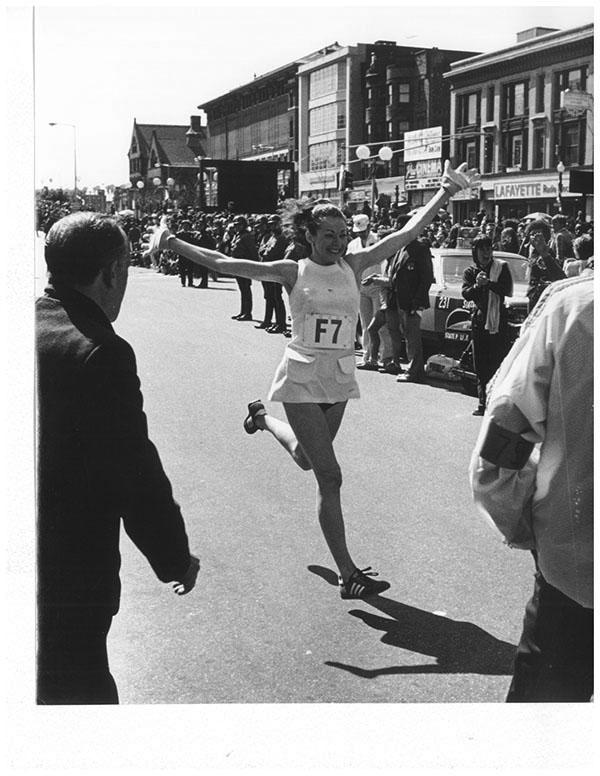
“Second, I wanted to create opportunities for women in the sport because everybody was saying, ‘Oh, well, women’s running doesn’t count. Nobody else is going to run.’ I knew other women would run if they weren’t afraid of it. I wanted them to feel what I felt. I joked with my coach, ‘They hate me now, but they’re going to love me when they’re 40!’ Did I have an idea of what I was going to be? Only vaguely. A journalist at the Boston finish line was saying this was just a joke, this was a one-off, right? And I said, ‘There will be a time when women’s running is as popular and publicizable as men’s.’ Well, of course, these guys just hooted. They thought that was hilarious.”
“I knew I wanted to become a better athlete, because I knew I was going to get cheesed for being ‘just a jogger.’”
How things have changed!
“Completely! It’s a social revolution because running changes everything in your life. It’s transformational, especially for women. You know, you leave that relationship, you take a risk with your job, you get a better education, you’re not afraid to make a tough decision.”
Where do you see it going?
“I see women’s sports and running leading the charge and taking women into endurance events we can’t quite imagine. Women are already outrunning men when the distance is very long. It’s just that for 3,000 years sports have been about speed, power and strength. Now, finally we’re realizing, it’s also about endurance, stamina and flexibility, balance. We’re now creating those events. Why couldn’t we have a 24-hour run in the Olympics? Or why couldn’t we have a six-day race with three men on the team and three women on the team?
“We’re going to see this for women’s capabilities because of women’s endurance and stamina. When the race is 100 miles, women are winning outright. Everybody laughs and says, ‘Who wants to run 100 miles?’ Well, that’s what they said to me 50 years ago: ‘Who wants to run a marathon?’”
You’re 72 now. What’s next?
“I’m going to stay in shape. In 2017, I ran Boston, and then the New York City Marathon. Last year I ran London. And then I fell and hurt my hip, which is now recovering. This year is going to be shorter stuff, like the Senior Games, some half-marathons, 5ks with the Rock ’n’ Roll series. Hopefully, by September I can run the Great North Run in England, but my main focus is [to] run Boston again, even though they retired my bib number. I plan on running it when I’m 80. And I hope to finish the Big Six—I need Tokyo and Chicago. [My other goal] is driving 261 Fearless as a non-profit globally. We’re in 11 countries, but there are places we should be and aren’t yet, like Canada.”
Meet Kathrine Switzer at the Toronto Marathon Expo this weekend. She and 261 Fearless master coach Emily Ertel will be speaking at the Better Living Centre on May 3 at 4 p.m. and May 4 at 2 p.m. Both talks are free to attend.
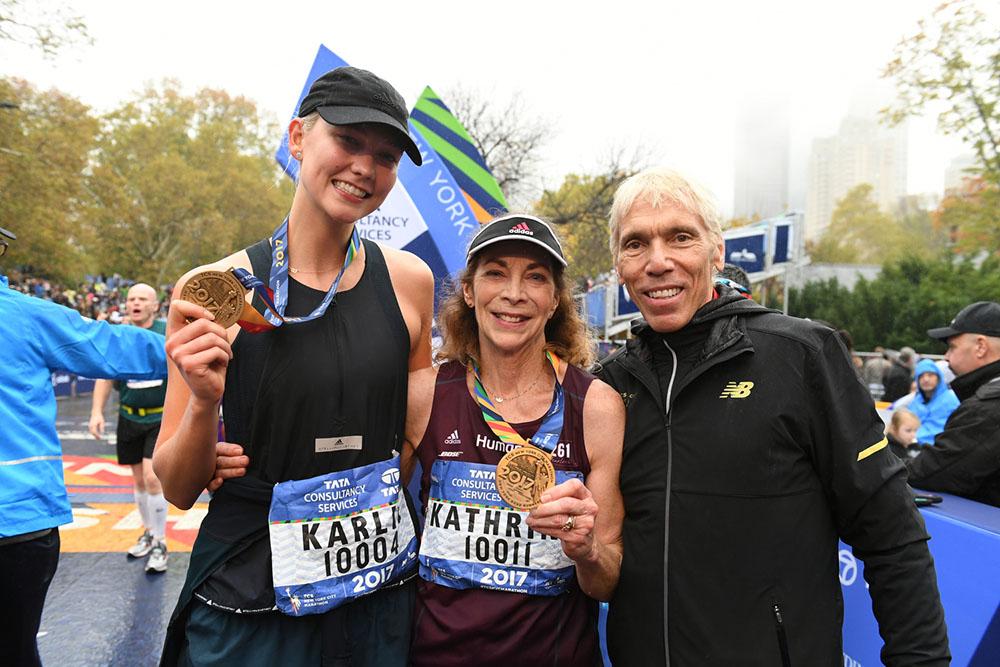

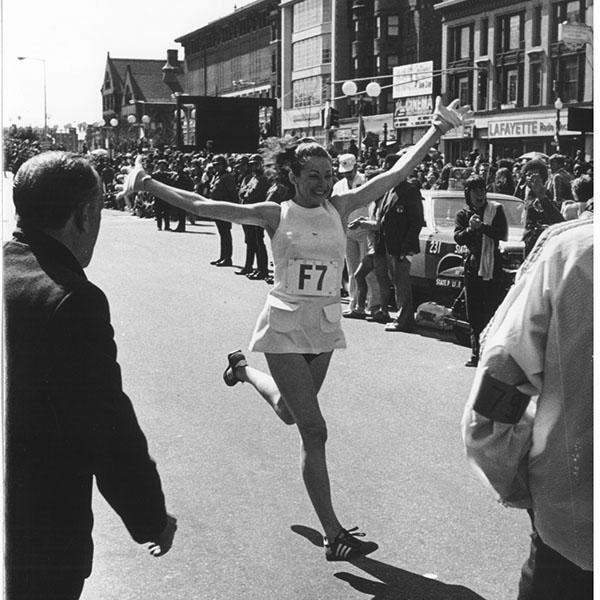
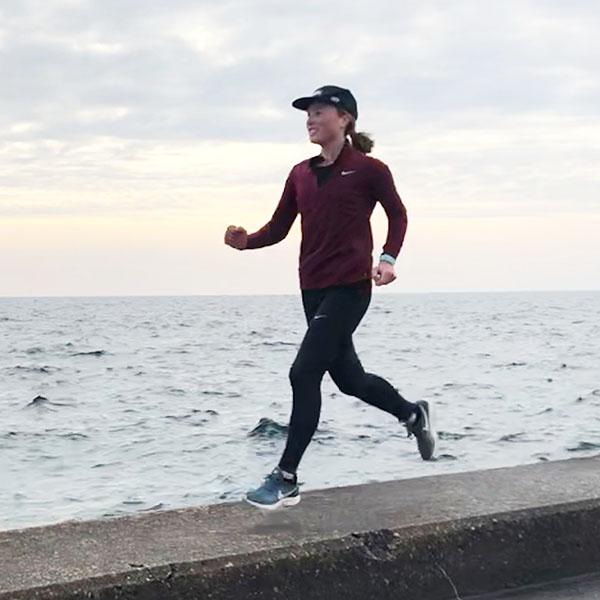

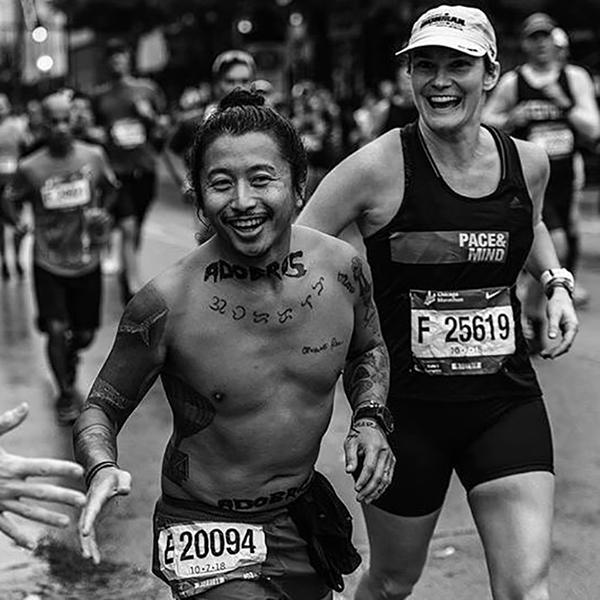
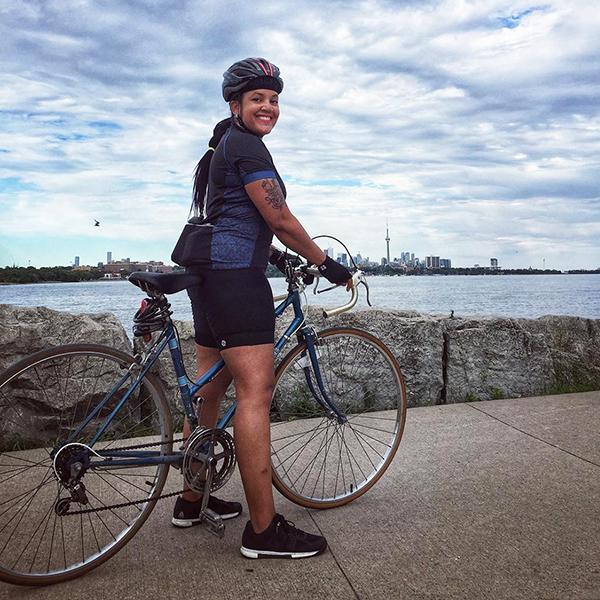
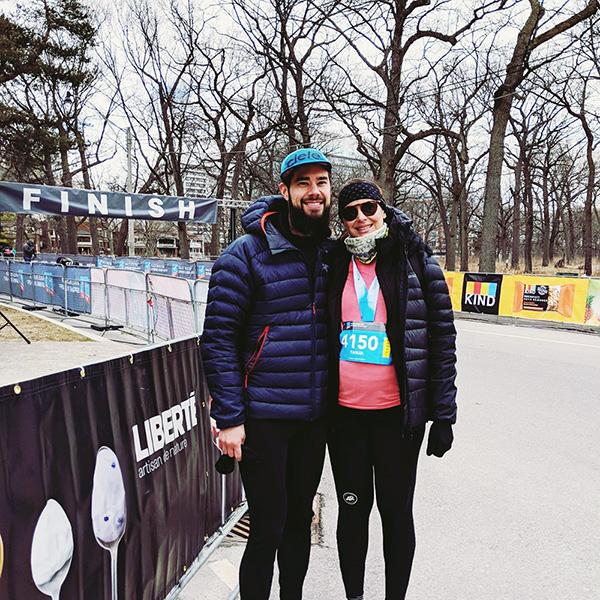
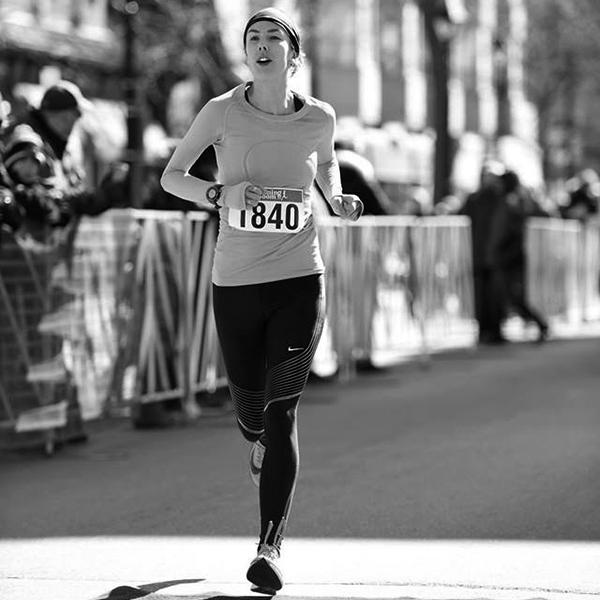
Very insightful interview! Thank you!